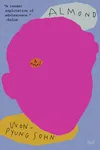Picture a South Korean storyteller who crafts tales that tug at your heart and linger in your mind—meet Won-pyung Sohn! Born in 1979, this novelist, screenwriter, and film director has taken the literary world by storm with her debut novel, Almond, a poignant coming-of-age story that’s touched readers globally. With a knack for blending cinematic flair with deep emotional resonance, Sohn’s work explores the human condition in ways that feel both universal and uniquely Korean.
From Seoul’s bustling streets to the quiet moments of self-discovery, Sohn’s stories invite us into worlds where characters grapple with identity, connection, and growth. Her ability to weave social issues into compelling narratives has earned her international acclaim, making her a standout voice in contemporary literature.
The Making of Won-pyung Sohn
Born on April 21, 1979, in Seoul, South Korea, Won-pyung Sohn grew up as the second daughter of politician Sohn Hak-kyu. Her academic journey at Sogang University, where she majored in sociology and philosophy, shaped her structured yet individualistic approach to storytelling. These disciplines taught her to analyze society’s frameworks while cherishing the nuances of personal identity—skills that shine in her writing. Though she dreamed of becoming a novelist since elementary school, Sohn’s career began in film. She studied film directing at the Korean Academy of Film Arts, winning awards like the 6th Cine21 Film Review Award and the Science Fantasy Writers’ Award for her script I Believe in the Moment.
Won-pyung Sohn’s Unforgettable Stories
Sohn’s literary debut, Almond (2016), is a masterpiece of young adult fiction that explores alexithymia through its protagonist, Yunjae, who struggles to feel emotions due to underdeveloped amygdalae—his brain’s “almonds.” The novel’s tender exploration of friendship and resilience won the Changbi Prize for Young Adult Fiction and has been translated into 13 languages, a rare feat for a debut. Critics praise its uniquely Korean yet universally relatable coming-of-age narrative.
Her follow-up, Counterattacks at Thirty (2017, also known as Born in 1988), tackles the struggles of young adults navigating a society rife with injustice and falsehood. Winning the Jeju 4.3 Peace Literary Award, it showcases Sohn’s ability to craft fast-paced plots with sharp social commentary. Other works, like April Snow (2018), delve into love and loss with vivid characters, while Prism continues her exploration of human growth. Sohn’s style is marked by rapid plot development, unique characters, and a cinematic quality that reflects her filmmaking roots.
What sets Sohn apart is her process: she starts with a social issue or theme, then builds characters to embody it. This approach creates stories that resonate deeply, blending humor, empathy, and insight. Whether it’s a teen grappling with emotional detachment or a thirty-something rebelling against societal norms, her characters feel alive and authentic.
Why Won-pyung Sohn Matters
Won-pyung Sohn’s impact lies in her ability to bridge cultural divides while addressing universal themes. Almond alone has sold over 600,000 copies in South Korea and captivated readers in over 30 countries, proving her stories transcend borders. Her focus on mental health, identity, and societal pressures resonates with young readers and adults alike, offering a fresh perspective on what it means to be human. As a filmmaker, she brings a visual richness to her prose, making each novel feel like a movie unfolding in your mind.
Sohn’s legacy is still unfolding, with plans for an epic novel spanning four generations of daughters. Her work challenges readers to confront tough questions about connection and growth, all while wrapped in a warm, accessible narrative. She’s not just a writer—she’s a storyteller reshaping contemporary literature.
About Won-pyung Sohn
- Born: April 21, 1979, Seoul, South Korea
- Key Works: Almond (2016), Counterattacks at Thirty (2017), April Snow (2018), Prism
- Awards: Changbi Prize for Young Adult Fiction (2016), Jeju 4.3 Peace Literary Award (2017)
- Notable: Her debut novel Almond is translated into 13 languages.
Ready to dive into a world of heart and humor? Snag Almond and discover why Won-pyung Sohn’s stories are unforgettable!
